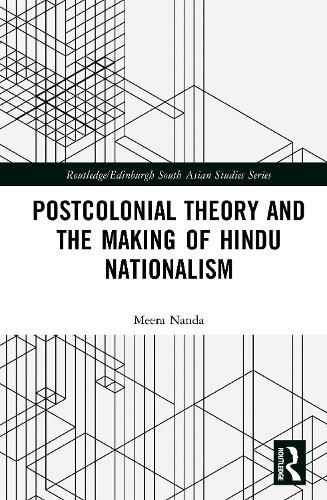Readings Newsletter
Become a Readings Member to make your shopping experience even easier.
Sign in or sign up for free!
You’re not far away from qualifying for FREE standard shipping within Australia
You’ve qualified for FREE standard shipping within Australia
The cart is loading…






This book tells the story of the ominous synergy that has developed in recent years between the Postcolonial Left and the Hindu Right.
It argues that the Postcolonial Left's relentless attacks on the "epistemic violence" of Western norms of rationality and modernity are providing the conceptual vocabulary for the Hindu Right's project of "decolonizing the Hindu mind." The postcolonial project of creating an alternative modernity free from the "imperialism" of Eurocentric concepts harks back to the late 19th century when Indian nationalists first began to "provincialize" Europe and is widely shared by the contemporary Hindu Right. This book shows that far from an avant-garde progressive movement, postcolonialism in India bears a strong family resemblance, in context and content, with "conservative revolutions" of the kind that brought down the Weimar Republic and prepared the grounds for the Nazi takeover.
Both an intellectual history of India through the last half-century and a critical engagement with postcolonial theory, this book will be of interest to scholars of South Asia and the humanities and social sciences at large.
$9.00 standard shipping within Australia
FREE standard shipping within Australia for orders over $100.00
Express & International shipping calculated at checkout
This book tells the story of the ominous synergy that has developed in recent years between the Postcolonial Left and the Hindu Right.
It argues that the Postcolonial Left's relentless attacks on the "epistemic violence" of Western norms of rationality and modernity are providing the conceptual vocabulary for the Hindu Right's project of "decolonizing the Hindu mind." The postcolonial project of creating an alternative modernity free from the "imperialism" of Eurocentric concepts harks back to the late 19th century when Indian nationalists first began to "provincialize" Europe and is widely shared by the contemporary Hindu Right. This book shows that far from an avant-garde progressive movement, postcolonialism in India bears a strong family resemblance, in context and content, with "conservative revolutions" of the kind that brought down the Weimar Republic and prepared the grounds for the Nazi takeover.
Both an intellectual history of India through the last half-century and a critical engagement with postcolonial theory, this book will be of interest to scholars of South Asia and the humanities and social sciences at large.